7 Sustainable Eco Friendly Kitchen Ideas for 2024
As more homeowners focus on sustainability, eco-friendly kitchens are becoming a top priority in modern home design. Reducing waste, conserving energy, and using sustainable materials can all contribute to a greener lifestyle. If you're looking to transform your kitchen into a more eco-conscious space, the good news is that there are countless ways to do so — from energy-efficient appliances to sustainable kitchen accessories. In this post, we’ll explore the essentials of eco-friendly kitchen style and the best accessories to make your kitchen more sustainable.
5/8/20245 min read
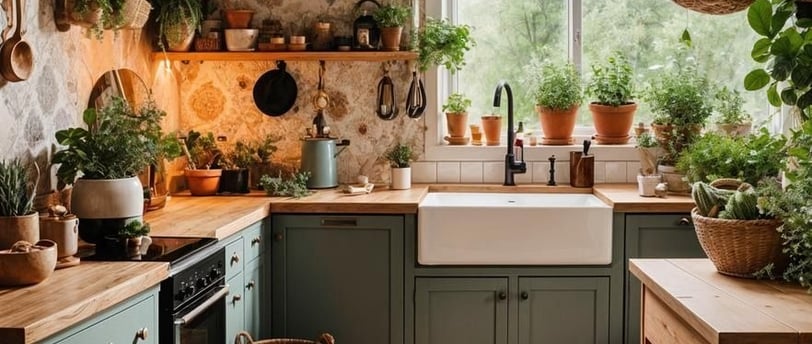

1. Choose Sustainable Materials
Sustainable materials are the foundation of any eco-friendly kitchen. When choosing cabinetry, countertops, and flooring, look for materials that are renewable, recycled, or sustainably sourced. Here are some popular options:
Bamboo: A fast-growing, renewable resource, bamboo is perfect for cabinets, cutting boards, and countertops. It’s durable, stylish, and eco-friendly
Reclaimed Wood: Using reclaimed wood for countertops, shelving, or flooring helps reduce deforestation and gives new life to old materials.
Recycled Glass: Countertops made from recycled glass offer a unique, colorful look while diverting waste from landfills.
Cork Flooring: Cork is a renewable resource that’s soft underfoot, durable, and naturally resistant to moisture — perfect for eco-friendly kitchen flooring.





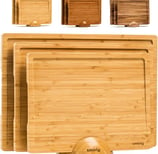
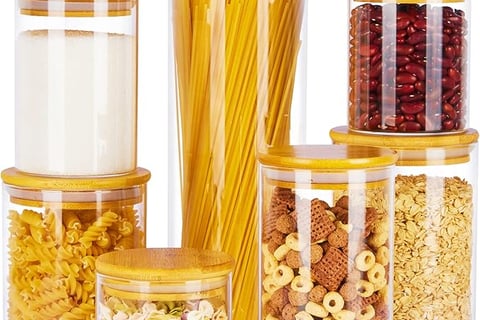

Amazon finds:
2. Opt for Energy-Efficient Appliances
Appliances are the heart of any kitchen, and opting for energy-efficient models can significantly reduce your energy consumption. Look for appliances with an Energy Star rating, which ensures they meet energy-saving standards. Here’s what to consider:
Energy-Efficient Refrigerators: Modern fridges with energy-saving technologies can reduce your electricity usage while keeping your food fresh longer.
Induction Cooktops: These cooktops are more energy-efficient than traditional gas or electric ranges, as they heat pots and pans directly, wasting less heat.
Water-Saving Dishwashers: New dishwashers are designed to use less water while still giving you sparkling clean dishes, making them a must for eco-conscious kitchens.
3. Reduce Plastic Use with Sustainable Accessories
Appliances are the heart of any kitchen, and opting for energy-efficient models can significantly reduce your energy consumption. Look for appliances with an Energy Star rating, which ensures they meet energy-saving standards. Here’s what to consider:
Reusable Silicone Bags: Ditch single-use plastic bags and switch to reusable silicone storage bags. They’re perfect for storing snacks, leftovers, and more.
Glass or Stainless Steel Containers: Opt for glass or stainless steel food storage containers instead of plastic ones. They’re durable, non-toxic, and perfect for both food storage and meal prep.
Compostable Sponges & Cloths: Replace plastic sponges with compostable alternatives made from natural materials like cellulose, or try reusable kitchen cloths to cut down on waste.
Beeswax Wraps: Replace plastic wrap with beeswax wraps — a reusable, biodegradable solution for wrapping food and keeping items fresh.


Amazon finds:
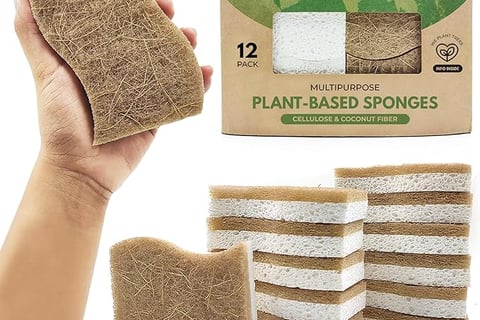

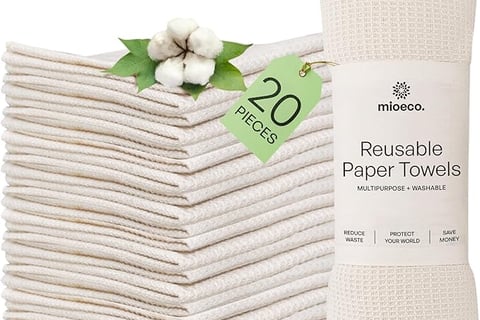

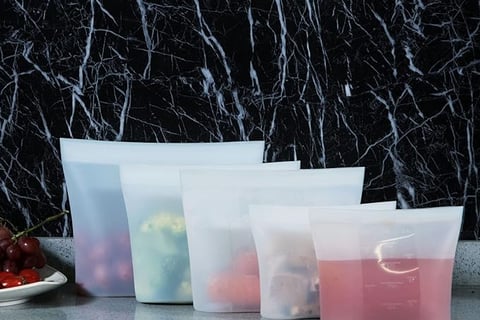

4. Incorporate Water-Efficient Fixtures
Water conservation is key in an eco-friendly kitchen. Upgrading your kitchen sink and fixtures can significantly reduce your water usage:
Low-Flow Faucets: Install low-flow faucets to reduce water usage without compromising water pressure. These faucets can save thousands of gallons of water per year.
Water Filtration Systems: Instead of relying on bottled water, install an under-sink water filtration system to enjoy clean drinking water right from the tap. This reduces plastic waste while providing fresh, filtered water for cooking and drinking.
5. Invest in Sustainable Cookware and Utensils
Choosing the right cookware and utensils is another important step in creating an eco-friendly kitchen. Look for durable, long-lasting items made from sustainable or recycled materials:
Cast Iron Cookware: Cast iron pots and pans are known for their longevity. When well-maintained, they can last a lifetime and replace non-stick cookware that needs frequent replacing.
Stainless Steel & Bamboo Utensils: Replace plastic utensils with durable stainless steel or bamboo options. They’re long-lasting, heat-resistant, and better for the environment.
Recycled Aluminum Pots and Pans: Cookware made from recycled aluminum is eco-friendly and performs just as well as traditional materials, often at a lower environmental cost.
6. Composting for a Greener Kitchen
Composting is one of the easiest ways to reduce kitchen waste. By turning food scraps into compost, you’re reducing landfill waste and creating nutrient-rich material for your garden:
Compost Bins: Set up a kitchen compost bin to collect food scraps like fruit peels, coffee grounds, and vegetable trimmings. Look for a bin with a charcoal filter to keep odors at bay.
Countertop Composters: If you’re short on outdoor space, countertop composters are a great solution. These small, efficient machines speed up the composting process and make it easy to reduce food waste indoors.

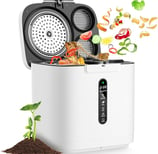
Amazon finds:



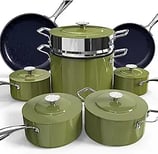
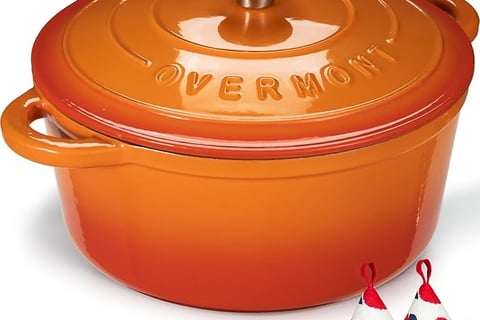

7. Bring in Natural Light
Natural light not only enhances the aesthetic of your kitchen but also reduces the need for artificial lighting. Maximize your kitchen's exposure to natural light by incorporating large windows or skylights. If that’s not possible, consider energy-efficient LED lighting:
Energy-Efficient LED Bulbs: LED lighting uses up to 75% less energy than traditional bulbs, making it an eco-friendly choice. Plus, they last longer, reducing waste and replacement costs.
Solar-Powered Lighting: For outdoor kitchens or patios, solar-powered lighting is a fantastic eco-friendly option that uses renewable energy to keep your spaces bright.
Conclusion
Creating an eco-friendly kitchen is all about making sustainable choices that benefit both your home and the environment. By choosing energy-efficient appliances, sustainable materials, and eco-friendly accessories, you can reduce your carbon footprint while enjoying a beautiful, functional kitchen. Whether you're planning a full kitchen renovation or just looking to make small, impactful changes, these tips and accessories will help you design a greener, more sustainable space.
This blog post provides a thorough guide to designing an eco-friendly kitchen, from sustainable materials and appliances to waste-reducing accessories.
7 ways to build your dream house
Enjoy exclusive special deals available only to our subscribers.
Trends
Explore the latest in interior design today.
Contact:
© 2024. All rights reserved.
Trends
This page contains Affiliate Links
